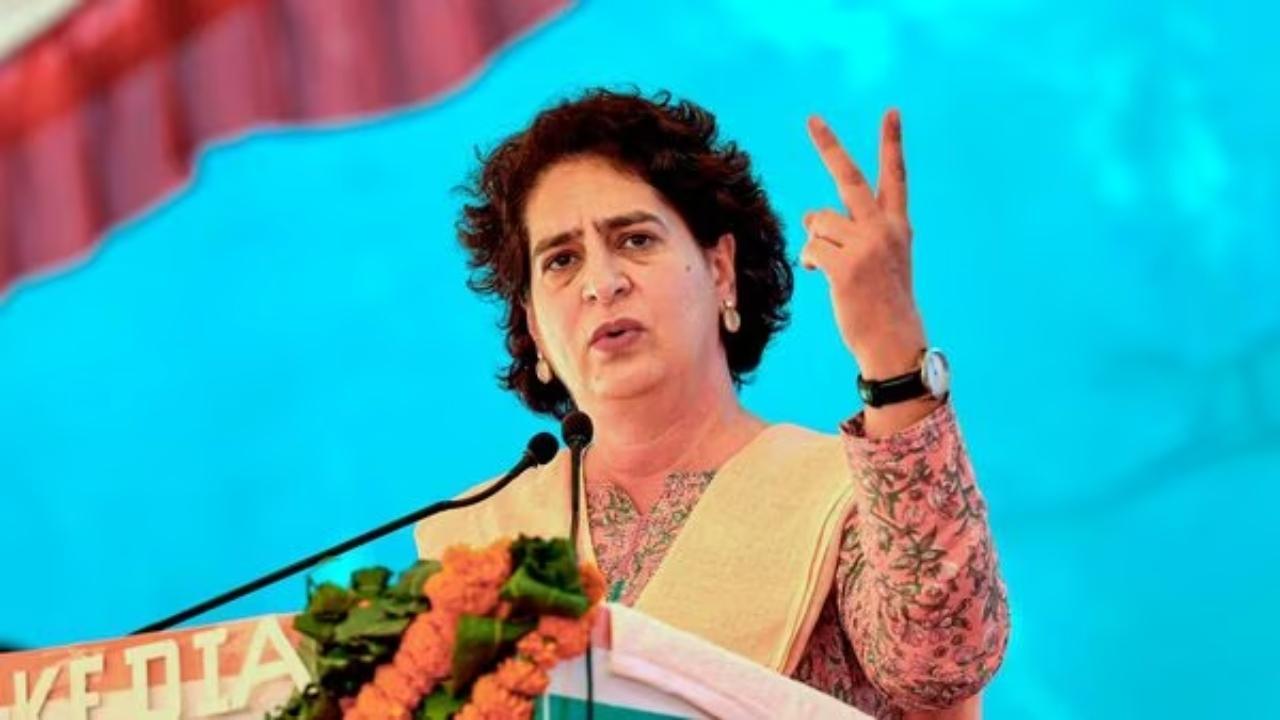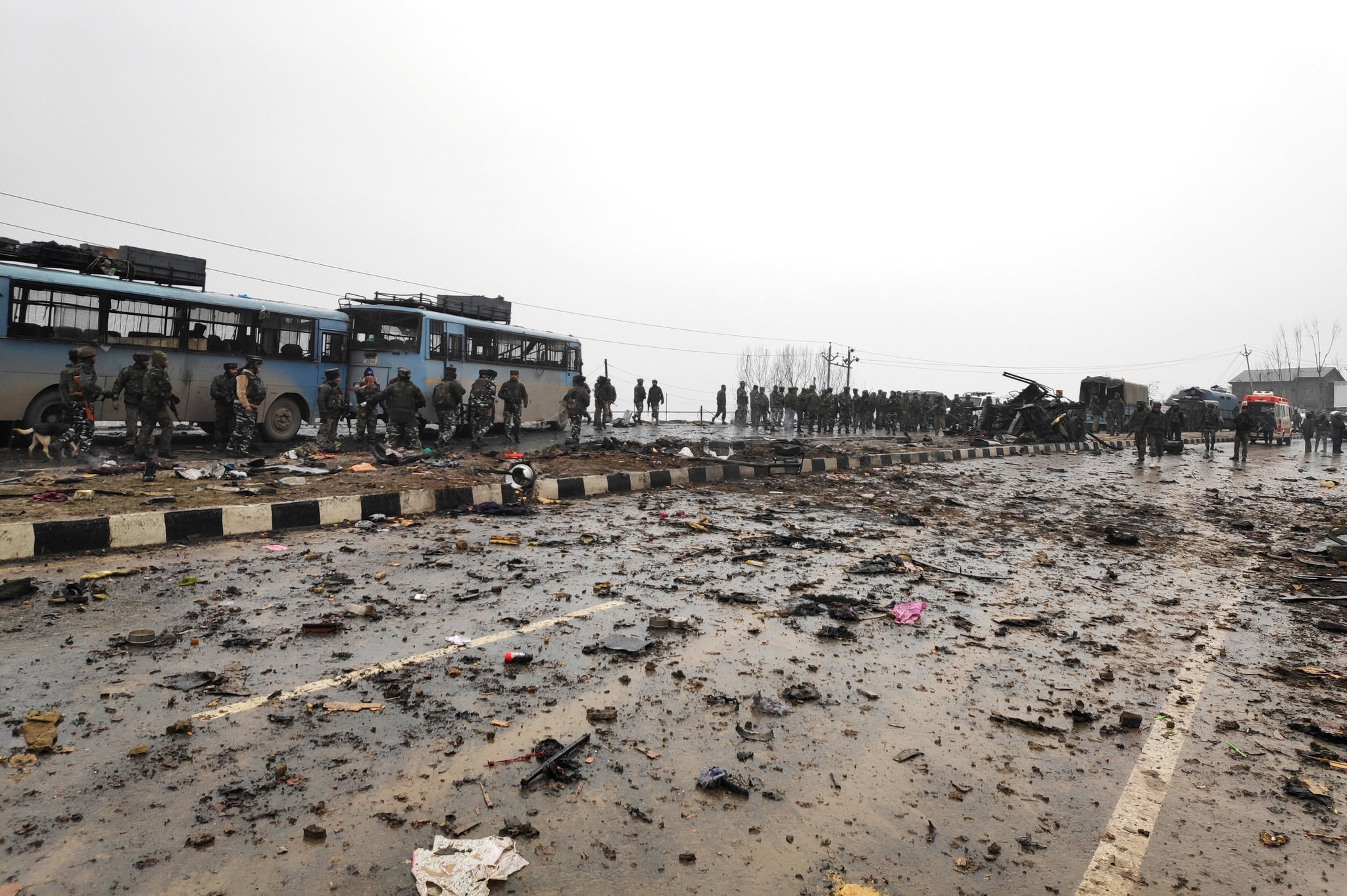


Congress MP Priyanka Gandhi Vadra has taken to social media to slam the Modi government for its economic policies. She quoted first prime minister Pandit Jawaharlal Nehru to highlight the impact of those policies on the country's citizens. She also referred to data from the RBI and the World Inequality Database to underscore the economic distress caused by the government's actions. Read on to find out more about her criticism and the reactions it has sparked.
Congress MP Priyanka Gandhi Vadra Slams Modi Government's Economic Policies
Background
Congress MP Priyanka Gandhi Vadra has recently criticized the Modi government's economic policies, arguing that they have exacerbated economic inequality and caused hardship for ordinary citizens. Her criticism comes amid growing concerns about the state of the Indian economy, with unemployment rising and inflation at a peak.
Vadra's Criticism
In a series of tweets, Vadra quoted former Prime Minister Pandit Jawaharlal Nehru to highlight the impact of the Modi government's policies on the country's citizens. She also referred to data from the Reserve Bank of India (RBI) and the World Inequality Database to underscore the economic distress caused by the government's actions.
Vadra specifically criticized the government for its handling of the COVID-19 pandemic, which she said had disproportionately affected the poor and marginalized communities. She also pointed to the government's decision to implement demonetization in 2016, which she said had caused widespread economic disruption and job losses.
Government's Response
The Modi government has not yet responded to Vadra's criticism. However, the government has previously defended its economic policies, arguing that they are necessary to stimulate growth and create jobs.
Reactions
Vadra's criticism has sparked mixed reactions from various stakeholders. Some have supported her views, arguing that the government's policies have exacerbated inequality and caused economic hardship. Others have criticized her for being too critical of the government and for not offering any alternative solutions.
Top 5 FAQs
1. What are the main points of Priyanka Gandhi Vadra's criticism of the Modi government's economic policies?
Vadra's main points are that the government's policies have exacerbated economic inequality, caused hardship for ordinary citizens, and disproportionately affected the poor and marginalized communities.
2. What data did Vadra use to support her criticism?
Vadra referred to data from the Reserve Bank of India (RBI) and the World Inequality Database to underscore the economic distress caused by the government's actions.
3. How has the Modi government responded to Vadra's criticism?
The Modi government has not yet responded to Vadra's criticism.
4. What are some of the reactions to Vadra's criticism?
Reactions to Vadra's criticism have been mixed, with some supporting her views and others criticizing her for being too critical of the government and for not offering any alternative solutions.
5. What are some past events related to this topic?
Past events related to this topic include the implementation of demonetization in 2016 and the government's handling of the COVID-19 pandemic.

The Indian National Congress (INC) has announced its plans to launch a month-and-a-half-long campaign in Jammu and Kashmir on April 22. The purpose of the campaign is to demand the restoration of statehood and to further the “Save the Constitution” movement. With the recent appointment of Syed Naseer Hussain as the new J&K in-charge, the party hopes to regain its lost support in the Union Territory. This campaign comes at a crucial time, as former supporters of the Congress leader Ghulam Nabi Azad have recently dissolved their party, raising questions about their political future. The Congress hopes to use this opportunity to highlight the BJP's failures in empowering elected governments and its betrayal over statehood.

Thousands of citizens in Pune are rallying together through an online petition to demand the protection of their city's hills and hill slopes from any construction. The petition is addressed to the former Pune Municipal Commissioner and Chairman of the state-appointed Committee on Bio-Diversity Park and Hill Top Hill Slopes. The citizens are concerned that the committee's review may result in allowing construction on the hills, while strict measures have already been mandated by the government to prevent it. The citizens stress the importance of preserving these natural areas for the city's ecological balance and urge the government to uphold its promise to future generations.

After the devastating terror attack in Pahalgam, Jammu and Kashmir, India has suspended the 1960 Indus Waters Treaty with Pakistan. This decision was made during a key meeting chaired by Union Home Minister Amit Shah, with discussions on potential actions being taken against Pakistan. As tensions between the two countries continue to escalate, Indian leaders have condemned Pakistan for their involvement in the attack and have vowed to take strong measures in response.

The Indian Army made its first major move since the Pahalgam terror attack on April 22, as they killed top Lashkar-e-Taiba (LeT) commander Altaf Lalli in an encounter in Jammu and Kashmir's Bandipora district. The security forces are on the hunt for the terrorists responsible for the brutal killing of 26 civilians and have launched a massive anti-terror operation. In other developments, Indian Army Chief General Upendra Dwivedi visited Srinagar for a security review meeting and the authorities demolished the houses of two suspected terrorists involved in the Pahalgam attack.

In a hearing at the Supreme Court, the bench rebuked Congress leader Rahul Gandhi for his "irresponsible" comments about freedom fighter Vinayak Damodar Savarkar. The judges highlighted the need to show respect for India's freedom fighters and questioned whether Gandhi was aware of his grandmother and Mahatma Gandhi praising Savarkar. The court also stayed an Allahabad High Court order that refused to dismiss a lower court's summons against Gandhi over his alleged remarks about Savarkar.

The Supreme Court has stepped in to warn Congress MP Rahul Gandhi over his comments about India's independence activist Veer Savarkar, staying a trial court's summons to the politician. The top court emphasized that Savarkar is a highly respected figure in Maharashtra and stated that no one would be allowed to make derogatory remarks about freedom fighters. The court also pointed out that Gandhi's family has had a history of praising Savarkar and Gandhi himself has been warned that the court will take suo motu cognizance of any such remarks. Additionally, the article also mentions an attack in Jammu and Kashmir that has led to heightened tensions between India and Pakistan.

In a successful operation by the security forces, a Lashkar-e-Taliba (LeT) terrorist associate, identified as Altaf Lalli, was killed in an ongoing encounter in the Bandipora district of Jammu and Kashmir. The encounter began after the security forces received intelligence about the presence of terrorists in the area. Two security personnel have also been injured in the exchange of fire and are currently undergoing treatment at a nearby hospital. The clash highlights the continued efforts of the security forces to combat terrorism in the region.

The Telangana-Chhattisgarh border is a hotbed of tension as security forces step up their efforts to root out Maoist activity from the region. Top Maoist leader Hidma is the target of current high-security operations, with forces strategically advancing through previously inaccessible areas. With mounting pressure, sources indicate that the hold of the Maoists in the region is gradually weakening, making for a tense and critical situation.

As the nation grapples with the aftermath of a terror attack in Pahalgam, security forces are undertaking a massive operation in the dense Karregutta hills forest to eliminate the heart of Naxal command. This operation, involving 7,000 personnel and cutting-edge technology, aims to strike a blow at Naxalism by targeting top leaders of the PLGA Battalion No. 1. This bold move by the CRPF, with the Director General personally overseeing the operation, marks a turning point in the fight against Maoist insurgency. With five Naxals already killed and more likely to come, the operation is being hailed as a decisive victory and could potentially spell the end of Naxalism in India.

The US Government has publicly criticized The New York Times for its reporting on the recent terror attack in Pahalgam, Kashmir, calling attention to the difference between the newspaper's use of "militant" instead of "terrorist." This choice of words is not only misleading but also minimizes the severity of the attack, which was claimed by a Pakistan-based group with links to Lashkar-e-Taiba. The US House Foreign Affairs Committee took to social media to point out the error and highlight the real nature of the attack, noting that it has significant implications for regional security.